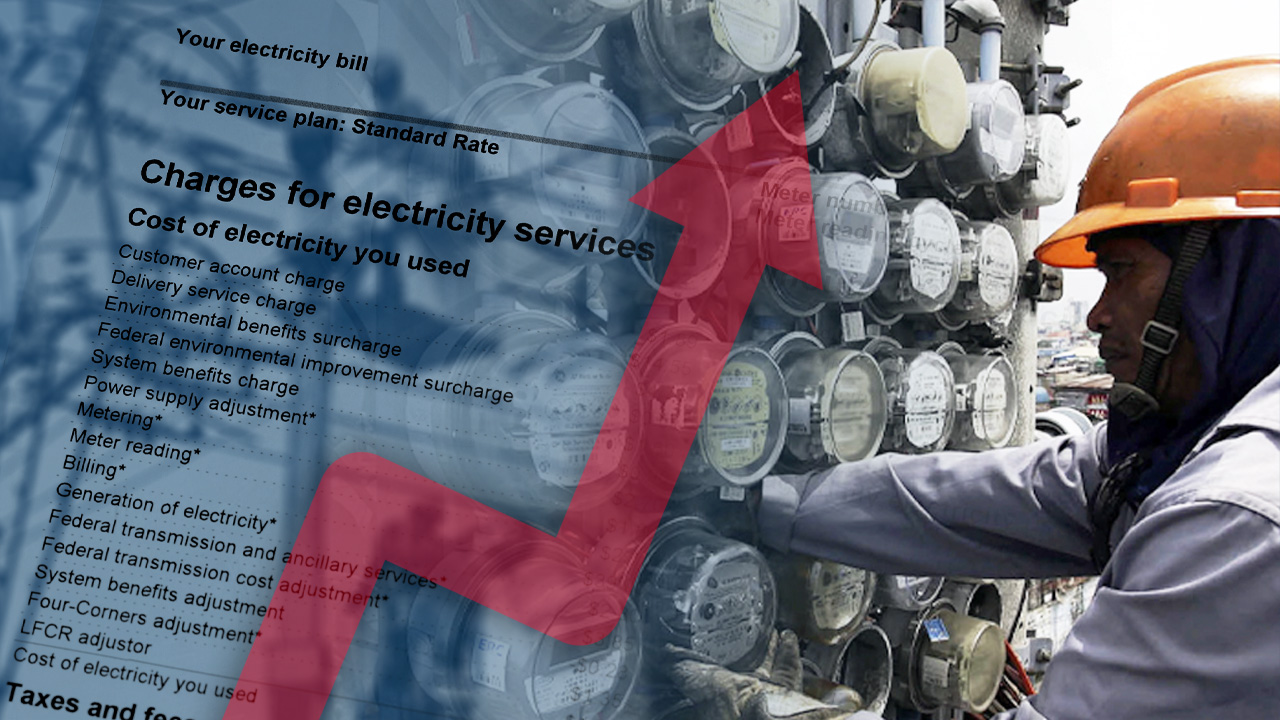Consumer advocate says power rates should be on downward trajectory
MANILA, Philippines—The call for a review of the Manila Electric Company’s (Meralco) franchise amid high electricity rates grew stronger as consumer advocates stressed that subscribers get zero benefits from the power firm’s “gargantuan franchise.”
Romeo “Butch” Junia, who had been involved as an intervenor in cases filed at the Energy Regulatory Commission (ERC) related to power rates, told INQUIRER.net that as early as 2015, he had been calling for a review of Meralco’s franchise.
“[T]he franchise by itself is an incentive, and it should motivate the utility to keep within least cost. Unfortunately, ERC does not seem to take that view,” Junia said.
In a privilege speech last Nov. 7, Laguna Rep. Dan Fernandez proposed that Meralco’s franchise should be reviewed and split into three, citing the power distributor’s “poor service and alleged abuses.”
READ: Meralco’s capital cost too high, passed on to customers – House rep
Two more lawmakers, Laguna First District Rep. Ann Matibag and ACT Teachers party-list Rep. France Castro, backed the proposed review.
READ: 2 more House members echo Fernandez’s rant vs Meralco
‘Economics of scale’
Junia stressed that the upward trend of power rates showed that Meralco is not abiding by its mandate to supply energy “at the least cost.”
“Power rates in the franchise area being serviced by Meralco should be on a downward trend as the law granting the utility the franchise to supply electricity mandated that it do so ‘at the least cost’,” he explained.
“But instead of the rates normalizing, or declining, they have taken an upward trajectory that would show the mandate for ‘least cost’ isn’t being followed,” he continued.
According to him, this could be attributed to the power distributor’s failure to factor in consumer welfare in its practice of “economies of scale” or the principle in business that would lower costs as its consumer base grows.
“Usually in economies of scale, as we understand it, the larger you grow, the lower is your cost, so how come the gargantuan franchise of Meralco has not been able to benefit us,” said Junia.
“Instead of inverse proportion where the bigger the size, the lower the cost, it became the opposite where an increase in rates followed an increase in business,” he added.
Junia noted that the consistent increase in power rates being charged by Meralco to its customers was puzzling as these should be on a downward trend in inverse proportion to its customer base.
He said that the power rate hikes imposed by Meralco defy sound business practices where the bigger the company grows, the lower its costs should be for consumers. He also pointed out that since Meralco had already cornered the electricity supply in the National Capital Region, it should have been followed by a downward trend in prices.
“The reference rate for comparison should be the RORB ( return on rate base) of PHP0.79 per KWH to the rate today of PHP1.35 per KWH, which peaked at PHP1.64 per KWH under PBR (performance base rating),” said Junia.
“Meralco franchise is obviously at an uneconomic scale, measured by its cost of service as reflected in the rates, and must therefore be cut down to economic size,” Junia added.
“Meralco net earnings rose from PHP2.7 billion under RORB to current level of PHP20+B. If that is the measure of economies of scale, Meralco is fantastic,” Junia lamented.
Meralco issues clarification
Meralco, through spokesperson Joe Zaladarriaga, denied the accusations made in the speech of Fernandez in the House of Representatives.
READ: Meralco denies being monopolistic, keeping capital cost high
Zaladarriaga said that the power distributor “has no power to determine the weighted average cost of capital (WACC)” as it is a function of the ERC.
The WACC is a percentage that determines how much return a company should be getting to ensure the viability of its investments. A higher WACC means a company needs to make more profit to ensure operations, while a lower WACC indicates that it needs only a lower profit to keep running.
In terms of its impact on consumers, a high WACC indicates that consumers may experience higher costs for the company’s products or services. On the other hand, a low WACC means consumers may benefit from more stable or lower prices for the company’s products or services.
Zaladarriaga likewise defended Meralco against allegations of abuse of market power.
“Records likewise show that Meralco is fully compliant with all government regulations and even outperformed the level of service required by the regulator. This is precisely the reason why some local government units are clamoring for Meralco to take over their service,” Zaldarriaga said.
“Further, while Meralco is the largest utility in the country, it has never committed and has no record of any anti-competitive behavior or abuse of market power,” he went on.
“On the contrary, we have always managed to supply electricity to our customers in the most transparent and least cost manner, and is the only distribution utility that has complied with an ERC directive to refund distribution charges by refunding more than 48 billion pesos in 2023,” he added.
